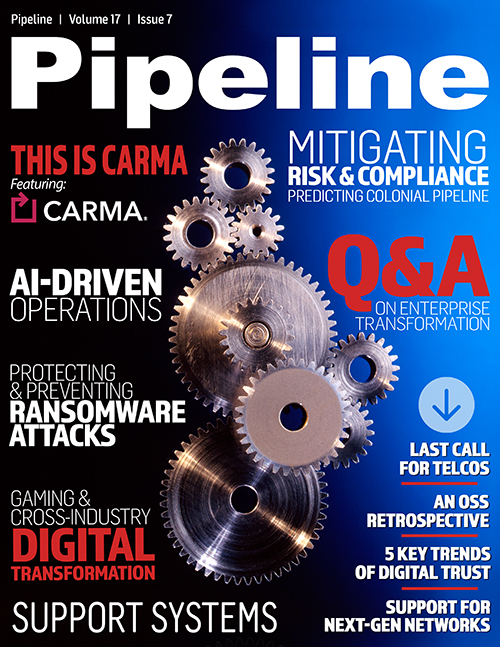Last Call for Telcos
Telcos have advantages
Not all is doom and gloom. In today’s world, there are two things considered extremely valuable: monthly recurring revenue and sticky customer relationships. Telcos have both. In fact, the aaS (as-a-Service) model was, in a way, invented by the telcos. At the same time, telcos have what in the past has been a sticky business relationship with an extremely high proportion of the organizations and individuals in the world today. These are key strengths. Additionally, the telco business model when supported by an innovation ecosystem that leverages synergies with the hyperscalers has significant benefits for society.
Challenges and opportunities
Organizations have deeply ingrained mechanisms to establish and maintain an identity. These consist of policies, procedures, ways of thinking, and cultural aspects that serve to make the organization appear the same from day to day. This is important in business relationships, because in many circumstances, it builds confidence in customers and suppliers. In a world where there is a lot of change, but underlying structures remain stable, this lets customers, suppliers and investors make comfortable predictions about future actions and responses. For example, in the way the financial markets have perceived telcos in the past. However, in a world now undergoing structural change this stasis can be very dangerous.
For example, Western Union was a very successful business for more than a century. In the 1970’s it had a very large and profitable network providing Telex services (15 and 20 Baud-speed Baudot code to paper-tape-based large mechanical teletypewriters). When 30 BPS ASCII dial-up modems appeared, Western Union said, “We know what to do. We will make a 30 Baud Telex service.” In a few years, Western Union’s network disappeared, and the company retreated to a small financial niche.
Later, a man in Chicago saw that the pager business was going to be technologically left behind. He went around buying up pager businesses on the cheap and integrated them to cut costs. He made a personal fortune milking them to their end of life.
Another man in Seattle saw the same thing. But he used the pager businesses as a foundation for a new technology that was appearing. This technology was cellular. His name was Craig McCaw. The company he built, McCaw Cellular, was sold to what became AT&T, is still the operational hub for AT&T, and was a much bigger financial success.
These three stories illustrate the choice that telcos face today:
Plan A. Use the current telco model as a foundation for innovation that leads to a vibrant future.
Plan B. Prepare to milk the existing telco model as it declines.
Plan C. Retreat to a financial niche.
In private conversation after the Google announcement discussed above, a leader of one of the leading companies in the industry said that the announcement marks the beginning of the last chance for today’s telcos. Essentially, he was saying that telcos must now start on Plan A or events will force them into Plans B or C. Today’s action or inaction will determine the future course.
Change and crisis
Moving from a monoculture based on a very small number of incumbent vendors that make all your infrastructure decisions for you, to being an intelligent consumer in a vibrant ecosystem consisting of a variety of innovators ranging from large companies to small start-ups, can be challenging. Sometimes it takes a crisis to overcome such a challenge.
For example, take author Yutaka Kuroda, Managing Director, Cardinal Consulting International. His book Why Japanese Companies Cannot Perform with Full Capability said that Japanese people were creative and innovative, but Japanese companies had structural barriers that prevented innovation. Thus, Japanese companies should actively work to remove those structural barriers, or they would slowly slip into a back corner of the global economy. The response to the book from people inside those Japanese companies was, “You are absolutely correct. We should make those changes. But it will never happen in my company.” Now, with the pandemic keeping people working from home, some Japanese companies are finding that they can make these changes. This is an illustration of crisis propelling us over a challenge.
The hyperscalers’ actions are precipitating the crisis that triggers telcos to move to a culture of being an intelligent consumer in a vibrant innovation ecosystem that they foster. The window of opportunity is open. But if action is not taken now, it will close quickly.



















